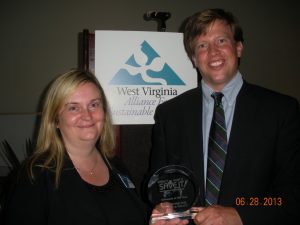Unemployment rates in West Virginia’s counties range from 5% to 12%. What is the unemployment rate in your county? Find out in this interactive graph in Sean’s blog post this week.
This week the West Virginia Offices of the Insurance Commissioner released its report on how the insurance exchange, created as part of the Affordable Care Act, will affect health insurance premiums in West Virginia. Brandon explains who will benefits the most in his blog post this week.
Budget cuts to higher education are forcing colleges and universities to increase tuition. This is not only making college less affordable for West Virginia students, it is also decreasing the quality and competitiveness of degrees earned at public institutions. How? Read more in Chris Nyden’s blog post.
As President Obama unveiled his plan to combat climate change this week, many in the Mountain State viewed it as anti-coal. His plan did, however, embrace natural gas as a clean-burning, transitional energy source. In the Charleston Gazette this week, Ted pointed out, however, that having maximum production of both coal and natural gas is not likely. Ted was also quoted in the State Journal stressing that for the President’s plan to not negatively impact West Virginia’s economy, a transition strategy that maps out how to diversify the state’s economy is key.
Speaking of West Virginia’s vast energy resources, according to a new poll by the Union of Concerned Scientists, most of us support a tax increase on coal to support a Future Fund.
Brandon was quoted in this Charleston Gazette article discussing a state-sponsored actuarial study that shows most West Virginians will end up paying less in health insurance premiums under the Affordable Care Act. Enrollment in the health insurance exchange begins in October with coverage effective January 1, 2014.
The Daily Mail published Brandon’s op-ed this week which countered the paper’s position that young people will choose not to participate in the insurance marketplace. Brandon debunked this claim citing a Kaiser Family Foundation poll that shows young people value health insurance as much as older folks and are likely to take advantage of the insurance exchange in 2014.
Today the WVCBP was honored to receive the EITC Advocate of the Year award from the Alliance for Sustainable Families. Working with the Alliance and its statewide coalition has been a rewarding partnership and we look forward to expanding that effort to include creating a state Earned Income Tax Credit. Many other states already have such a credit which augments the federal EITC and would provide more assistance to the state’s low-income working families.
